Delving into the ancient civilizations and their beliefs about Zodiac Signs is like embarking on a fascinating journey through time and culture. From Mesopotamia to Egypt, Greece to China, India to Mesoamerica, civilizations throughout history have revered the stars and found profound meaning in the alignment of celestial bodies. Exploring the rich tapestry of ancient astrological practices and beliefs, this article aims to shed light on the diverse interpretations and significance assigned to Zodiac Signs by ancient societies. Understanding how these civilizations viewed and utilized astrology can provide valuable insights into their spiritual beliefs, cultural practices, and the profound influence of the cosmos on their daily lives.
Contents
- Ancient Mesopotamia
- Ancient Egypt
- Ancient Greece
- Ancient China
- Ancient India
- Ancient Mesoamerica
- Conclusion
-
Frequently Asked Questions
- 1. What is the Babylonian Zodiac?
- 2. How did the Babylonians view astrological influences?
- 3. What is the significance of Zodiac Signs in Mesopotamian culture?
- 4. What is the Egyptian Zodiac?
- 5. How did the Egyptians incorporate Zodiac Signs into their religious beliefs?
- 6. What is the Greek Zodiac?
- 7. How did the Greeks connect mythology with Zodiac Signs?
- 8. What is the Chinese Zodiac?
- 9. How are animal symbolism and Zodiac Signs intertwined in Chinese astrology?
- 10. What is the Vedic Zodiac?
- References
-
Frequently Asked Questions
- What is the significance of the ancient civilizations’ beliefs about zodiac signs?
- How did ancient Mesopotamians view the zodiac signs?
- What were the astrological practices of ancient Greeks?
- How did the ancient Chinese interpret the zodiac signs?
- What role did zodiac signs play in ancient Indian astrology?
- How did the ancient Egyptians incorporate zodiac signs into their daily lives?
- What cosmic influences did the Mayans believe zodiac signs had?
- How did ancient Chinese astrology determine compatibility through zodiac signs?
- What role did mythology play in ancient Greek zodiac beliefs?
- How did ancient Indian astrology use zodiac signs to make predictions?
- References
- Read More
Ancient Mesopotamia
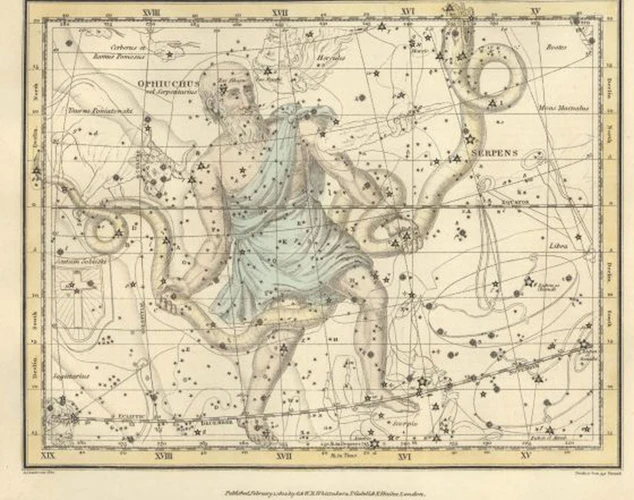
Ancient Mesopotamia, often referred to as the cradle of civilization, played a pivotal role in the development of astrology and the understanding of Zodiac Signs. The Babylonian Zodiac, which emerged around the 2nd millennium BCE, consisted of twelve distinct constellations, each associated with different time periods throughout the year. These celestial divisions, known as Zodiac Signs, were believed to have a profound impact on both personal and societal affairs. The Babylonians attributed significant importance to the alignment of the planets and stars, seeing them as divine forces that influenced human destiny. Astrology was not just a means of predicting events but also a tool for understanding and navigating the complexities of daily life. The Mesopotamians believed that each Zodiac Sign had unique qualities and characteristics that influenced an individual’s personality traits and destiny. These ancient civilizations meticulously observed celestial movements for guidance, using astrology to make important decisions, such as when to plant crops, go to war, or even perform religious ceremonies. The profound influence of astrology on Mesopotamian culture is a testament to the enduring legacy of their beliefs, transcending time and continuing to captivate our modern imagination.
Ancient Egypt
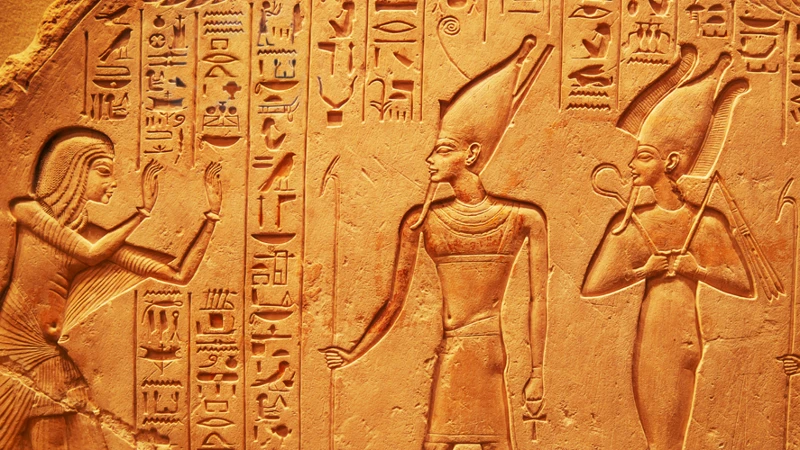
Ancient Egypt, with its rich mythology and deep spiritual beliefs, also held a strong fascination with Zodiac Signs. The Egyptian Zodiac, also known as the Egyptian Astrological Calendar, consisted of 12 signs, each associated with different gods and goddesses. The Egyptians believed that the alignment of the stars and constellations at the time of a person’s birth influenced their personality traits and destiny. These Zodiac Signs were intricately tied to the deities and played a significant role in everyday life. For example, the god Thoth, known as the god of wisdom, was associated with the Zodiac Sign of the ibis. The Egyptians used astrology not only for personal guidance but also for understanding the cosmic forces that shaped their society. The connection between astronomy and religion was deeply ingrained in Egyptian culture, and the study of Zodiac Signs served as a means to communicate with the divine and gain insights into the mysteries of life. The influence of Egyptian astrology can still be felt today, as many people continue to find resonance in the ancient wisdom and symbolism of the Egyptian Zodiac.
Ancient Greece
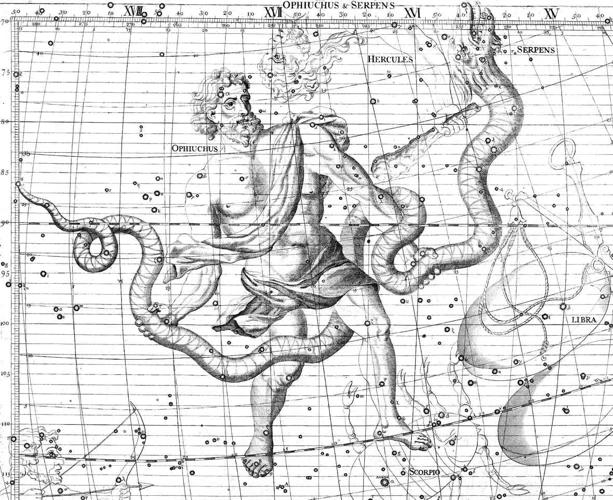
Ancient Greece, renowned for its contributions to philosophy, art, and literature, also had a deep connection with astrology and the study of Zodiac Signs. The Greek Zodiac, also known as the Zodiac of Dodekatheon, consisted of twelve astrological signs associated with different gods and goddesses of Greek mythology. These mythical beings were believed to exert a profound influence on human behavior and destiny. For instance, Aries was associated with the god Ares, symbolizing bravery and war, while Aphrodite, the goddess of love and beauty, was linked to Taurus. Greek mythology and Zodiac Signs were intricately intertwined, as each sign embodied the traits and attributes of the corresponding deity. Astrology played a significant role in the lives of ancient Greeks, guiding decisions related to various aspects of life, including relationships, careers, and even the interpretation of dreams. The belief in the Greek Zodiac offered individuals a framework for understanding their personalities and destined paths, as they sought to navigate their lives in harmony with the celestial forces. Today, the influence of ancient Greek astrology continues to captivate the imagination of many, showcasing the enduring power of these ancient beliefs and their impact on human interpretation of the stars.
Ancient China
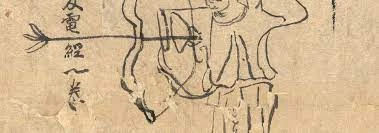
Ancient China holds a rich and ancient tradition in regards to Zodiac Signs and astrology. The Chinese Zodiac, also known as Shengxiao, consists of twelve animal symbols, each representing a year in a twelve-year cycle. These animals include the Rat, Ox, Tiger, Rabbit, Dragon, Snake, Horse, Sheep, Monkey, Rooster, Dog, and Pig. The symbolic significance of each animal extends beyond the realm of astrology and permeates various aspects of Chinese culture. The Chinese not only assigned specific traits and characteristics to each animal sign but also believed that the year of one’s birth sign held great influence over their personality, fortune, and even compatibility with others. The Chinese Zodiac, deeply connected to the philosophies of yin and yang and the Five Elements, is an integral part of Chinese life, influencing decisions, relationships, and even the naming of children. This astrological system continues to be celebrated and embraced in modern China, illustrating its enduring cultural significance throughout the centuries.
The Chinese Zodiac
The Chinese Zodiac, also known as Shengxiao, is a fascinating system that dates back over 2,000 years. Unlike the Western Zodiac, which is based on the alignment of the stars and constellations, the Chinese Zodiac is based on a twelve-year cycle, with each year associated with a specific animal sign. These animal signs include the Rat, Ox, Tiger, Rabbit, Dragon, Snake, Horse, Sheep, Monkey, Rooster, Dog, and Pig. Each animal sign represents certain personality traits and characteristics, as well as different fortunes and compatibility with others. The Chinese Zodiac is deeply ingrained in Chinese culture and is widely used to determine personal traits, compatibility, matchmaking, and even in naming newborns. Many Chinese individuals often proudly identify with their animal sign, even using it as a form of shorthand to describe their personality or life path. The Chinese Zodiac has a profound influence on various aspects of Chinese society, including astrology, folklore, celebrations, and even business decisions. It is not uncommon to find Chinese Zodiac symbols adorning decorations, artwork, and personal belongings during festive occasions, such as the Lunar New Year. The Chinese Zodiac is a captivating system that continues to shape beliefs and practices in Chinese culture to this day.
Animal Symbolism and Zodiac Signs
Animal symbolism played a crucial role in the ancient Chinese Zodiac system, adding a layer of depth and meaning to the Zodiac Signs. Each of the twelve signs in the Chinese Zodiac is associated with a specific animal, such as the Rat, Ox, Tiger, Rabbit, Dragon, Snake, Horse, Sheep, Monkey, Rooster, Dog, and Pig. These animals were chosen for their symbolic significance and their representation of certain qualities and traits. For example, the Rat is associated with intelligence and resourcefulness, while the Ox is associated with diligence and determination. This animal symbolism adds a dynamic dimension to the Chinese Zodiac, allowing individuals to identify with the characteristics and qualities of their corresponding animal sign. It is believed that the animal year in which a person is born influences their personality, behavior, and destiny. This concept of animal symbolism in the Chinese Zodiac has permeated Chinese culture for centuries, influencing various aspects of life, including naming conventions, compatibility evaluations, and even the depiction of deities in art and literature.
Ancient India
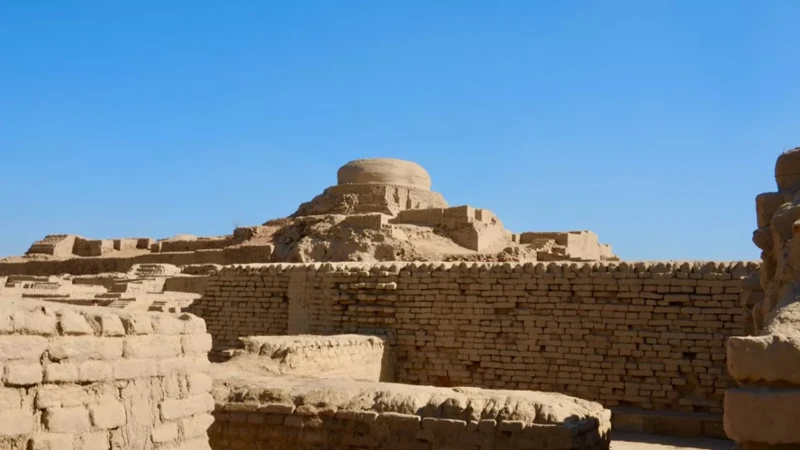
Ancient India holds a rich and deep connection to astrology and Zodiac Signs, deeply intertwined with its spiritual and religious traditions. The Vedic Zodiac, derived from the ancient scriptures known as the Vedas, forms the basis of Indian astrology. According to Vedic astrology, the Zodiac is divided into twelve signs, each representing specific personality traits, life paths, and cosmic energies. Hinduism, the predominant religion in ancient India, embraced astrology as an integral part of its belief system. Astrological predictions and remedies were sought to navigate life’s challenges and enhance spiritual growth. The alignment of the planets and the interpretation of one’s birth chart were considered essential for understanding an individual’s past, present, and future. Astrologers in ancient India provided guidance on various aspects of life, including career choices, marriage compatibility, and even spiritual pursuits. The intricate connection between astrology and Hinduism in ancient India showcases the profound influence the cosmos had on every aspect of daily life and the quest for enlightenment.
Ancient Mesoamerica
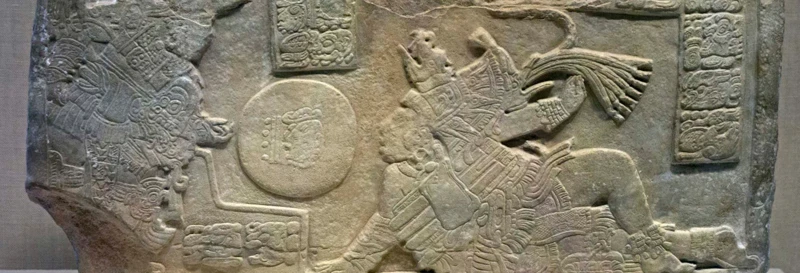
Ancient Mesoamerica, encompassing the vibrant civilizations of the Maya, Aztec, and Inca, held a deep reverence for celestial bodies and the cosmic influences they believed shaped human existence. The Mayan Zodiac, central to Mesoamerican astrology, consisted of thirteen unique signs, each representing a specific period in the annual calendar known as the Tzolkin. Cosmic events, such as eclipses and the movement of planets, were carefully observed and interpreted for their significance in personal and societal affairs. It was believed that an individual’s birth sign in the Mayan Zodiac influenced their personality traits, destiny, and cosmic energies they manifested. The Mayans utilized their intricate calendar systems and astrological practices for divination and personal guidance. By examining the alignment of celestial bodies, Mayan priests and astrologers would offer insights into an individual’s life path, compatibility with others, and even guidance for important decision-making. The rich intersection of astronomy, astrology, and spirituality in ancient Mesoamerica reveals a profound connection between humanity and the celestial realm, and serves as a testament to the complexities and mysteries of their vibrant cultures.
Conclusion

In conclusion, the study of ancient civilizations and their beliefs about Zodiac Signs provides valuable insights into the profound impact of astrology on human culture throughout history. From Mesopotamia to Egypt, Greece to China, India to Mesoamerica, these ancient societies revered the stars and developed intricate systems to understand the celestial influences on human destiny. The Babylonians, Egyptians, Greeks, Chinese, and Indians all recognized the significance of the Zodiac Signs, attributing unique qualities and characteristics to each sign. Astrology played a crucial role in these civilizations, influencing various aspects of life, including personal relationships, daily decision-making, and even religious practices. The enduring legacy of these ancient beliefs can still be seen today, as many people continue to place importance on their zodiac sign and seek guidance from astrological predictions. By exploring the diverse interpretations and practices of ancient cultures, we gain a deeper understanding of the human fascination with the cosmos and the eternal quest to find meaning in the stars.
Frequently Asked Questions

1. What is the Babylonian Zodiac?
The Babylonian Zodiac is an ancient system of dividing the sky into twelve constellations, each corresponding to a specific time period throughout the year. It was developed in Mesopotamia around the 2nd millennium BCE.
2. How did the Babylonians view astrological influences?
The Babylonians believed that the alignment of celestial bodies, such as planets and stars, had a profound influence on human destiny and events on Earth. They saw astrology as a means of understanding and navigating the complexities of daily life.
3. What is the significance of Zodiac Signs in Mesopotamian culture?
In Mesopotamian culture, Zodiac Signs held great significance. Each sign was associated with unique qualities and characteristics that influenced an individual’s personality traits and destiny. They were used for making important decisions and guiding various aspects of life.
4. What is the Egyptian Zodiac?
The Egyptian Zodiac is an ancient system of dividing the year into twelve months, with each month represented by an animal deity. It was closely tied to the ancient Egyptian religion and offered insights into an individual’s personality and fate.
5. How did the Egyptians incorporate Zodiac Signs into their religious beliefs?
The Egyptians believed that each Zodiac Sign was associated with a specific deity, and that these deities influenced and governed various aspects of life. They incorporated Zodiac Signs into their religious practices, rituals, and worship.
6. What is the Greek Zodiac?
The Greek Zodiac, also known as the Zodiac of Dodekatheon, is a system that divides the sky into twelve constellations, with each associated with a different mythological figure or deity. The Greek Zodiac played a significant role in ancient Greek mythology and cultural beliefs.
7. How did the Greeks connect mythology with Zodiac Signs?
The Greeks believed that each Zodiac Sign was connected to a specific mythological figure or deity. These connections were believed to influence an individual’s personality traits and characteristics, as well as their destiny.
8. What is the Chinese Zodiac?
The Chinese Zodiac, also known as Shengxiao, is a twelve-year animal cycle, with each year represented by a specific animal. The cycle is based on the lunar calendar and is deeply rooted in Chinese culture and folklore.
9. How are animal symbolism and Zodiac Signs intertwined in Chinese astrology?
In Chinese astrology, each animal in the Zodiac is associated with specific qualities and characteristics. These animals are believed to have a profound influence on a person’s personality, compatibility with others, and even their life path.
10. What is the Vedic Zodiac?
The Vedic Zodiac, also known as the Sidereal Zodiac, is a system used in ancient Indian astrology. It is divided into twelve equal parts, each corresponding to a specific constellation. The Vedic Zodiac is deeply intertwined with Hinduism and guides various aspects of life.







